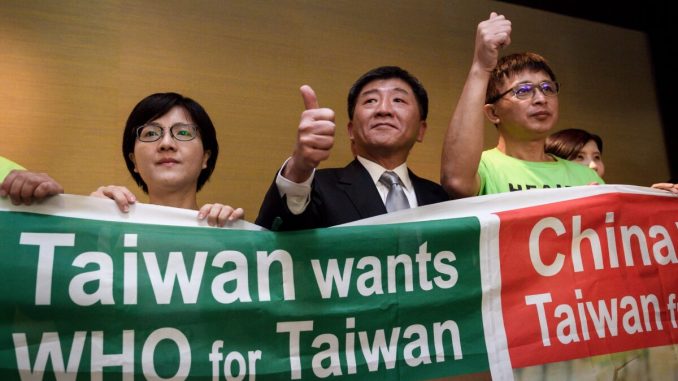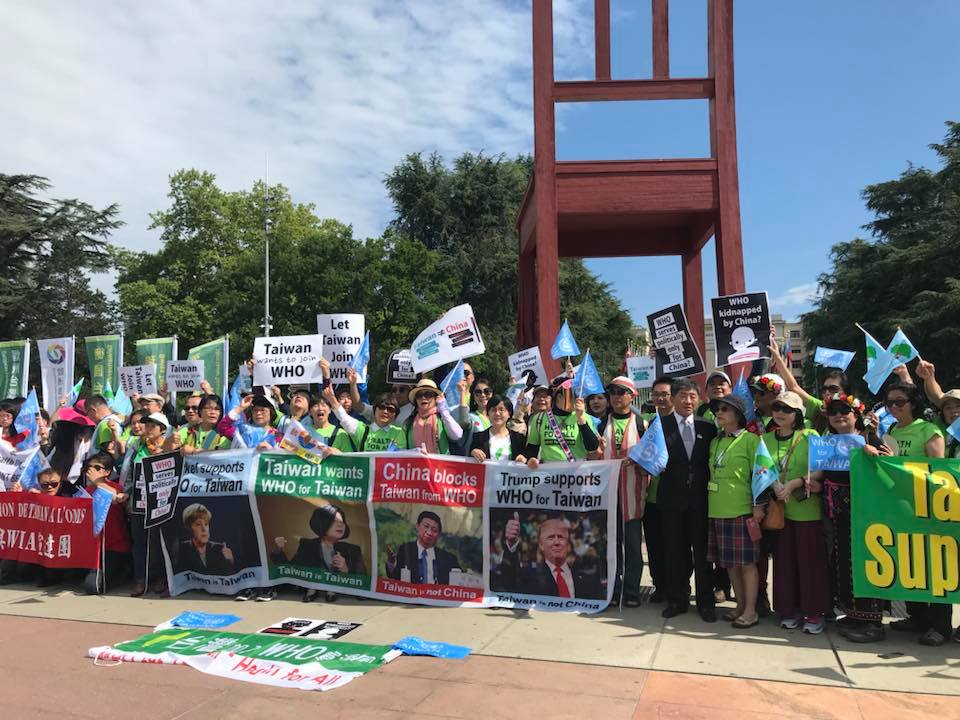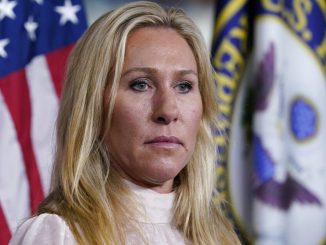
Commentary
Taiwan’s Foreign Minister blew up on May 11 by denouncing China’s “shameless lies” related to Beijing’s block on the island’s very reasonable, indeed essential, attempts to join the World Health Organization (WHO). Every sovereign nation, and then some, should have a seat at the public health table.
The G7 group of countries, including the United States, Japan, Britain, France, Germany, Canada, and Italy, have called for Taiwan’s attendance at the World Health Assembly, which is the WHO’s decision-making body. Taiwan should not only be invited to attend the upcoming meeting on May 24, but should be admitted to WHO as a full member.
Taiwan was the first country to identify SARS-CoV-2 to the WHO, the first to start screening flights from Wuhan, on Jan. 1, 2020, and a pioneer in creating apps to help defeat the disease. The country never went into lockdown, yet, is in the bottom percentile of deaths per 100,000 population.
Taiwan is also the only democratic majority-Chinese country in the world (the other two majority-Chinese countries are mainland China and Singapore). Taiwan’s democratic status could therefore be critical to someday inspiring democracy in China. That would likely remove the Chinese Communist Party (CCP) from power, decrease the likelihood of war, and put an end to China’s growing hegemonic power.
So, Taiwan’s admission to the WHO has much bigger ramifications than “just” public health, which is why China is adamantly against its admission. Indeed, China has for decades used check-book diplomacy to incent countries to de-recognize Taiwan in favor of Beijing, and thereby throw democracy under the bus. Today, only 14 of the United Nations’ 193 member states recognize Taiwan. Shamefully, the United States and European democracies are not among them. We must lead the way in recognizing Taiwan if we are to stop China’s expansion.

Any WHO vote is already stacked against Taiwan, with the recent G7 statement a small blossom of hope that Beijing is moving quickly to crush. China’s foreign ministry spokeswoman Hua Chunying condemned the United States on May 10 for “political manipulation” on the issue, saying that Taiwan had to accept its status as part (read: a province) of China. “I want to emphasize once again that the Taiwan issue concerns China’s core interests,” she said. “China has no room for compromise.” The foreign ministry said that “appropriate arrangements” were made for Taiwan’s global health participation, and that Beijing had the utmost care for Taiwan’s people. Hua laid the blame for the controversy with Taiwan’s independent-minded Democratic Progressive Party (DPP).
Taiwan’s Foreign Minister Joseph Wu was appropriately triggered. His ministry responded with a tweet-storm. “Shameless lies! Just goes to show the CCP can’t tell the truth,” he wrote. “After what #Beijing has done to #Xinjiang, #Tibet & #HongKong, no sane person would believe it could take care of #Taiwan’s health needs or otherwise. Think about #COVID19 & African swine fever. Thank God we aren’t under #China’s control! Please help us keep it at a distance.”
The incensed minister finished with, “The #CCP regime can’t speak for Taiwan as it never ruled the country for a single day. Its claim, in fact, is pure authoritarian expansionism. The truth is we’re a democracy & only the freely elected government represents #Taiwan’s people. @WHO, do the right thing: Let us in.”
Such talking back to China seems to be a thing recently. The Philippines’ Foreign Secretary Teddy Locsin started the trend with a best-in-class on May 4, by telling China to “GET THE F*** OUT” of its South China Sea exclusive economic zone.
The Bangladesh Foreign Minister, A.K. Abdul Momen, told reporters on May 11, in response to a Chinese warning against joining the Quad alliance with the United States, Japan, India, and Australia on May 10, that “We are an independent and sovereign state. We decide our foreign policy. Any country can uphold its position. But we will take decisions considering the interest of [our] people and the country.”
Beijing’s warning flummoxed observers as apparently nobody previously heard that Bangladesh had been invited to the Quad. What a great idea.
It’s unlikely that these Asian countries are coordinating their responses to Beijing (though that too would be a great idea), and more likely that Beijing is starting to simultaneously offend multiple foreign ministers in Asia. China’s wolf-warrior diplomacy is quickly biting back, which is an indication of the ludicracy of the idea in the first place. Diplomats are supposed to obtain, through mellifluous words and velvet handshakes, what generals cannot through resort to tanks and bombs. The idea of diplomats throwing verbal bombs against the sovereignty of countries in the region is now proving a total failure for Beijing.
Taiwan, of course, has dealt with Beijing’s wolf-warrior diplomacy, and worse, for decades. Therefore, Taiwan has the much-needed diplomatic experience that would be useful to the rest of the world. If any Chinese country is to be disinvited from an international organization, like the United Nations Security Council (UNSC), it should be mainland China.
Conversely, there are various ways to increase Taiwan’s participation at the United Nations. One would be to obtain the votes necessary for its readmission, through diplomatic and economic pressure on countries that would balance China’s illiberal pressures. If the United States and European Union did this in a concerted manner, they just might get the votes to readmit Taiwan as a full member of the United Nations.
China might then block such readmission through its position on the Security Council. In this case, and because the stakes are so high with China starting to use its outsized influence to in part control the organization, we ought to start demanding a much tougher approach to China’s diplomats. In July 2020, the Trump administration closed down China’s consulate in Houston. This was the right approach, as the consulate was engaged in extensive theft of intellectual property.

The same strategy could be used to close China’s diplomatic offices to the United Nations in the United States, Switzerland, France, and Italy. These countries could simply stop issuing visas to China’s U.N. diplomats, effectively removing China from the United Nations, as nearly all of the U.N. offices are in these four democracies. Consequently, it would then be easier to invite Taiwan back into its UNSC seat, from which it was unceremoniously ejected in 1971.
If inviting Taiwan back sounds outrageous, think of the alternative: continuing to dignify China with a seat at the United Nations even as it commits genocide, threatens war against the United States, Taiwan, and the Philippines, and violates the territorial integrity of its neighbors.
There are no easy choices with China. And when there are no easy choices, the best choice is the principled one. Get democratic Taiwan back into the business of representing mainland China.
Anders Corr has a BA/MA in political science from Yale University (2001) and a Ph.D. in government from Harvard University (2008). He is a Principal at Corr Analytics Inc., Publisher of the Journal of Political Risk, and has conducted extensive research in North America, Europe, and Asia. He authored “The Concentration of Power” (forthcoming 2021) and “No Trespassing,” and edited “Great Powers, Grand Strategies.”





Be the first to comment